- Home
- Popular Ingredients
- What Is Hyaluronic Acid
I may earn from qualified Amazon & Affiliate purchases at no cost to you.
What is Hyaluronic Acid Serum: How does it benefit my skin and how to use it for best results
by: Linda Robison / Facial Fitness Specialist @ ABZ
What is hyaluronic acid serum?
Well, to put it simply, it's a natural skin plumper!
It helps attract and bind water molecules to your skin, giving it a bouncy, plump look and feel.
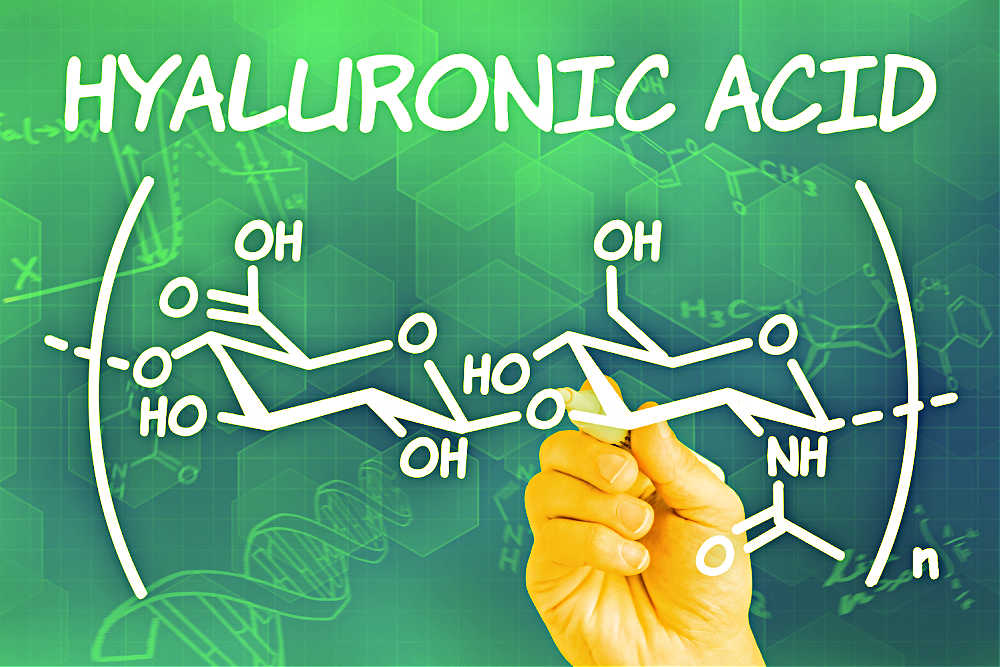
What does it for your skin
So what is hyaluronic acid and what does it do?
Well, to start, hyaluronic acid (HA) is naturally present in the skin's extracellular matrix and has strong water-binding ability. Which means it holds up our skin – sort of like a physical scaffold.
This is important for giving skin that firm, thicker appearance.
Levels of hyaluronic acid decrease with age. And while you can't replace natural levels, studies show that topical hyaluronic acid - in the form of creams or serums - can help improve the appearance of dry skin and fine lines.
Studies on topical hyaluronic acid in skin care suggest that it’s excellent in increasing skin moisture, elasticity, firmness, and even works as an antioxidant to slow cellular skin aging.
And because it helps improve skin elasticity and hydration – it can help decrease the depth of wrinkles (plumper, firmer skin means less visible lines and wrinkles), sometimes as quickly as 2 to 8 weeks.
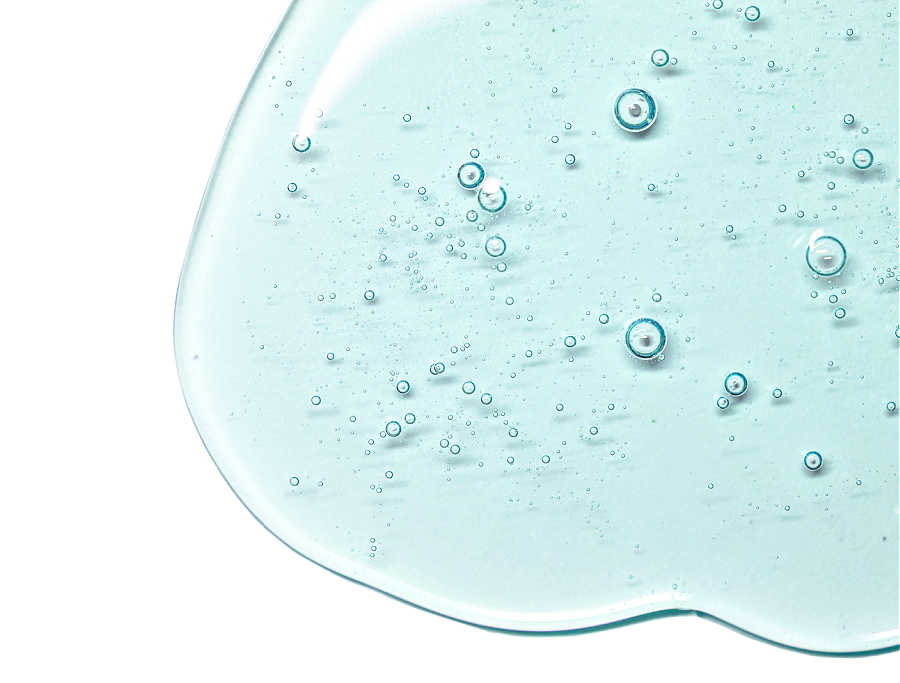
How does it help improve the look of aging complexion
As we age, our natural levels of HA decline.
Applying HA serum can help improve the appearance of parched, dehydrated, wrinkled skin by drawing moisture to the dermis.
And while it won’t permanently restore skin tissue levels, daily application of super low molecular weight hyaluronic acid can help provide a temporary lift and plumpness to the skin.
Don’t let the word “acid” scare you, there is nothing acidic or harsh about this mucopolysaccharide.
In fact, it's suitable for all skin types - from oily/acne prone to sensitive irritated skin.
However, results can vary depending on several factors, including:
- the type of hyaluronic acid (HA) you use
- the strength of HA
- how and when you apply it
Keep reading to learn more…
About hydrating hyaluronic acid serum
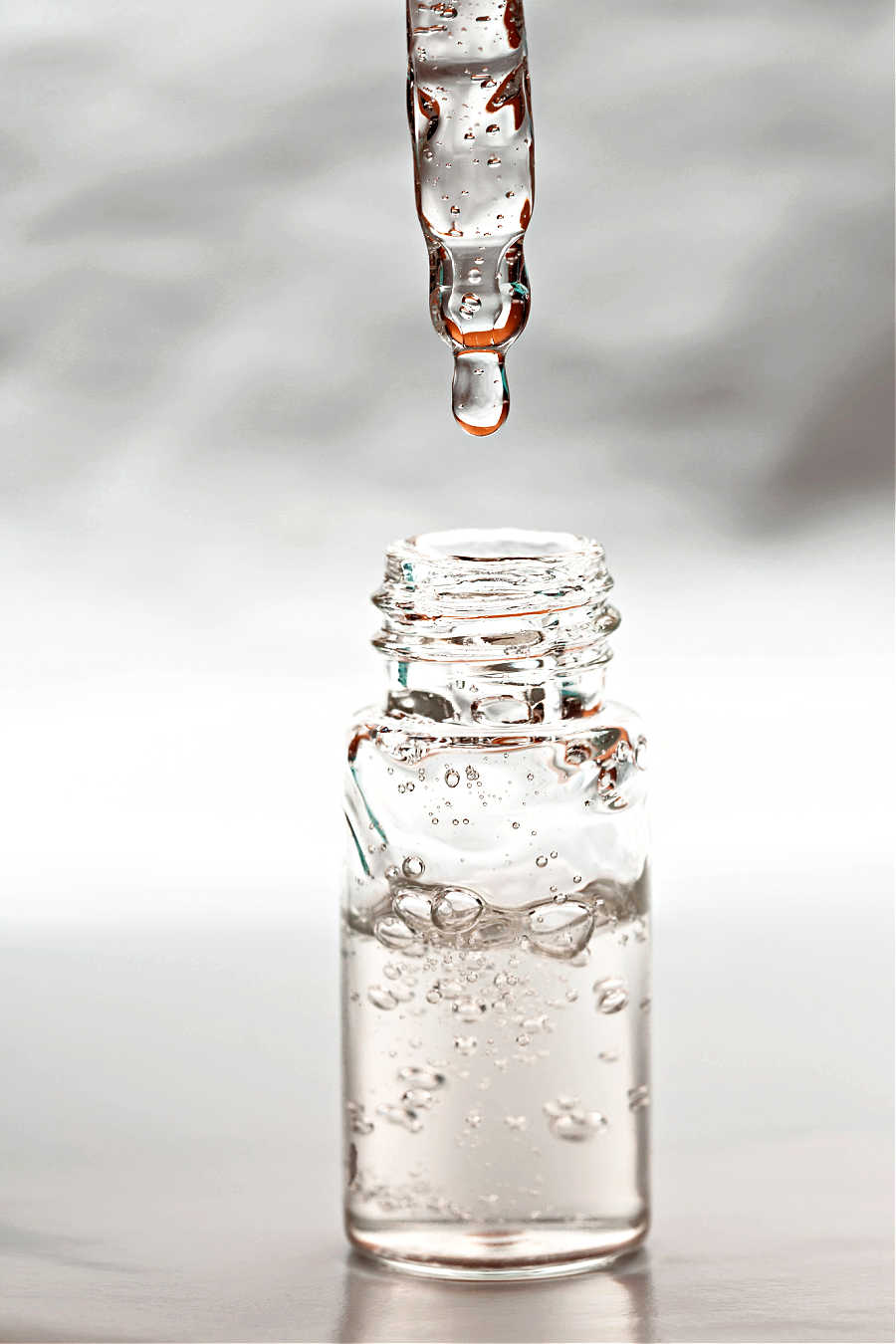
Hyaluronic acid is a natural substance (a group of sugar molecules called polysaccharides) naturally found in the body, like in the skin, joints, and eyes.
It acts as a cushion and lubricant, providing lubrication for movement and helping to protect joints from wear and tear.
Note: With age, the hyaluronic acid levels naturally decline, especially in the skin. This often results in drier, thinner skin. Which is why it's so important to manually replace it by using a topical serum or cream.
How to apply hyaluronic acid
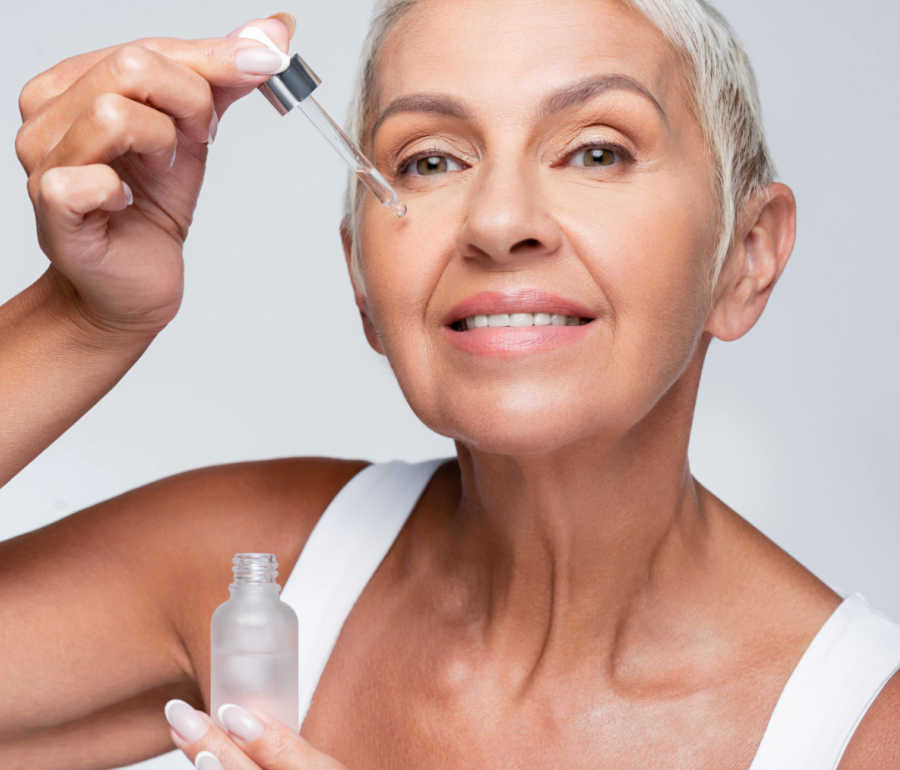
I've tried HA several times without any noticeable effects, until I learned how to apply it correctly for best results:
- Left over makeup or sunscreen can impede absorption. So, make sure your face is super clean.
- Hyaluronic acid serum is best applied on damp, not wet skin. If your face is too wet, it won't go on evenly. So, after washing your face, lightly blot your face dry, but leave it slightly damp.
- After application, let it partially dry and absorb, then follow-up with a moisturizer.
This is the special tip for best results! The moisturizer will help seal the serum deep into the skin.
Applying hyaluronic acid on your face is like putting a little air into a deflated tire. Lines and fold are a little less visible and your whole face looks plumper, fuller with a little less sag.
When to use hyaluronic acid
When is the best time to apply HA serum? I like to apply it twice a day, in the morning and at night.
First thing in the morning, after washing your face and before applying your moisturizer and sunscreen.
And, again, at night, after washing your face and before your favorite nighttime moisturizer.
Selecting the best hydrating hyaluronic acid serum
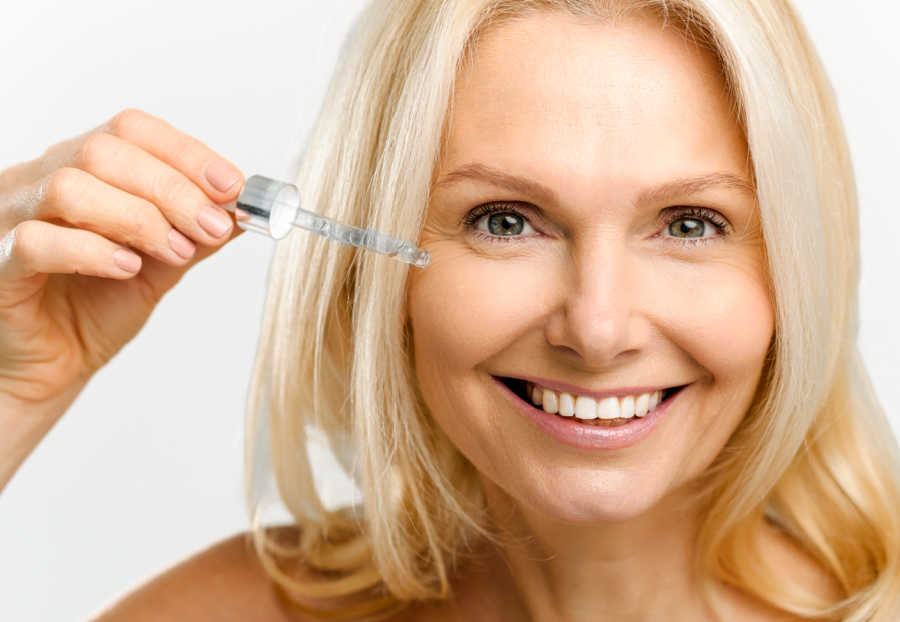
There are a few things to consider before buying a hyaluronic acid serum for your face.
Look for products that contain one or all three of the characteristics listed below for the best results:
- First: Look for low-molecular-weight hyaluronic acid. Low-molecular-weight HA penetrates better for optimum results. 1
- Second: Check to see if it's multi-molecular. This means the product has multiple weights so it can be absorbed into different layers of the skin. NIOD Multi-Molecular Hyaluronic Complex is good one to try.
- Third: Hyaluronic acid degrades quickly. Look for products that indicate they have a slow-release formula. The longer it stays on the skin, the more plumping action your skin will receive. Right now, the only company I am aware of that makes a slow release hyaluronic acid serum is SkinMedica's HA5 Rejuvenating Hydrator. The only problem is it's more expensive.
Other things to look for?
There are different types of hyaluronic acid used in cosmetics. They include:
- hydrolyzed hyaluronic acid
- sodium acetylated hyaluronate
- sodium hyaluronate *
* Look for products that contain sodium hyaluronate for best results.
Why?
Side effects of hyaluronic acid serum
HA serums and creams are pretty safe for most people and generally don't have any documented side-effects.
However, applying too much or using incorrectly can potentially dry out the skin if certain conditions are not met. Here's how:
1. Insufficient Moisture Source: Hyaluronic acid works by drawing moisture from its surroundings, including the deeper layers of the skin. If the environment is dry or lacking sufficient humidity, using too much may lead to moisture depletion from the skin instead of providing hydration.
2. Incorrect Application: Always apply it to damp or slightly moist skin. Applying it to completely dry skin without any water or moisture source may cause it to pull moisture from the skin's surface, leaving it feeling dry and dehydrated.
3. Lack of Occlusive Layer: Hyaluronic acid is a humectant that attracts water molecules, but it needs to be sealed in with an occlusive layer, such as a moisturizer or facial oil, to prevent water loss.
To avoid drying out the skin, follow these tips:
- Apply hyaluronic acid to slightly damp skin.
- Follow up with a moisturizer or occlusive product to seal in and prevent moisture loss.
- Adjust the amount used based on your skin's needs. Start with a small amount and observe how your skin reacts before increasing the quantity.
As always, it's best to pay attention to your skin's individual response and adjust your skincare routine accordingly.
If you have specific concerns or questions, it's recommended to consult with a dermatologist or skincare professional for personalized advice.
Final thoughts: What is hyaluronic acid
Hyaluronic acid is a great natural skin plumper that attracts and binds water molecules for a bouncy, firm appearance. It is naturally present in our skin but declines with age.
Applying it topically via serums or creams can improve dry skin and fine lines, increase skin moisture and elasticity and slow cellular skin aging, decreasing the depth of wrinkles in as soon as 2 to 8 weeks.
Hyaluronic acid is ideal for all skin types. For best results, it should be applied on clean, damp skin and sealed with a moisturizer.
Look for products with low-molecular-weight, multi-molecular and slow-release formula for best results.
Overuse or incorrect use can lead to skin dryness. So, always apply it on damp skin and always follow up with moisturizer to help seal it in.
FAQ: Hyaluronic Acid
Q: Can I use hyaluronic acid and tretinoin together?
Q: Can I use hyaluronic acid and tretinoin together?
A: Yes, after the tretinoin has been applied and absorbed, it's a good idea to apply hyaluronic acid serum or cream to seal in moisture and prevent the drying effects of tretinoin. However, to be safe, always double check with your tretinoin provider before applying.
Q: Does hyaluronic acid work?
Q: Does hyaluronic acid work?
A: Yes, but it's important to use products (serum is best) that contain high amounts of low-molecular-weight hyaluronic acid and in the form of sodium hyaluronate.
Q: Can I use hyaluronic acid serum under eye?
Q: Can I use hyaluronic acid serum under eye?
A: Yes, if the product is meant for the face and eye area, you can use HA serums and creams under and around the eye area. Always follow directions on the bottle.
Q: Do I apply retinol or hyaluronic acid first?
Q: Do I apply retinol or hyaluronic acid first?
A: It's best to apply your retinol first and let it soak in as directed. Then apply the hyaluronic acid and follow that with your favorite moisturizer.
Q: Can I use hyaluronic acid if I have rosacea?
Q: Can I use hyaluronic acid if I have rosacea?
A: Yes! Hyaluronic acid serum is great for rosacea. It's hydrating, non-greasy, and won't inflame or irritate sensitive rosacea conditions.
Q: Hyaluronic acid vs glycolic acid, what's the difference?
Q: Hyaluronic acid vs glycolic acid, what's the difference?
A: Glycolic acid is a type of alpha-hydroxy acid (AHA).
It's a chemical exfoliant used to exfoliate dead skin cells by breaking the glue bonds between skin cells.
This allows the dead cells to slough off easily and leaves your skin smooth and clean. It also helps stimulate collagen production.
Hyaluronic acid is a humectant, which means it draws moisture to the skin. Both glycolic acid and hyaluronic acid (HA) should be used to improve aging skin.
You should use the glycolic acid first (following directions on the bottle) and then once it's rinsed off, and before you apply your moisturizer, apply a light layer of HA to hydrate the skin.
Q: Which is better hyaluronic acid moisture cream or serum?
Q: Which is better hyaluronic acid moisture cream or serum?
A: The serum is usually more potent than the cream. Personally, I'd rather use the serum and then follow up with my favorite moisturizer cream.
Q: Can hyaluronic acid be used for stretch marks?
Q: Can hyaluronic acid be used for stretch marks?
A: According to the American Academy of Dermatology, two large studies showed that applying hyaluronic acid to early stretch marks made the stretch marks less noticeable.
Other pages you might like:
Hyaluronic Acid Studies
About the Author:
Linda Robison is a Facial Fitness Specialist and the founder of Anti-Aging Beauty Zone. She shares expert insights on skincare, facial rejuvenation, and beauty treatments—blending traditional wisdom, personal experience, and science-backed research for both at-home and in-office solutions.
Before you go ....
Please tap on the💙in the bottom right corner if you found this page helpful. Also, Let’s CONNECT! Click the buttons below to follow me on social media.
Thanks so much!

